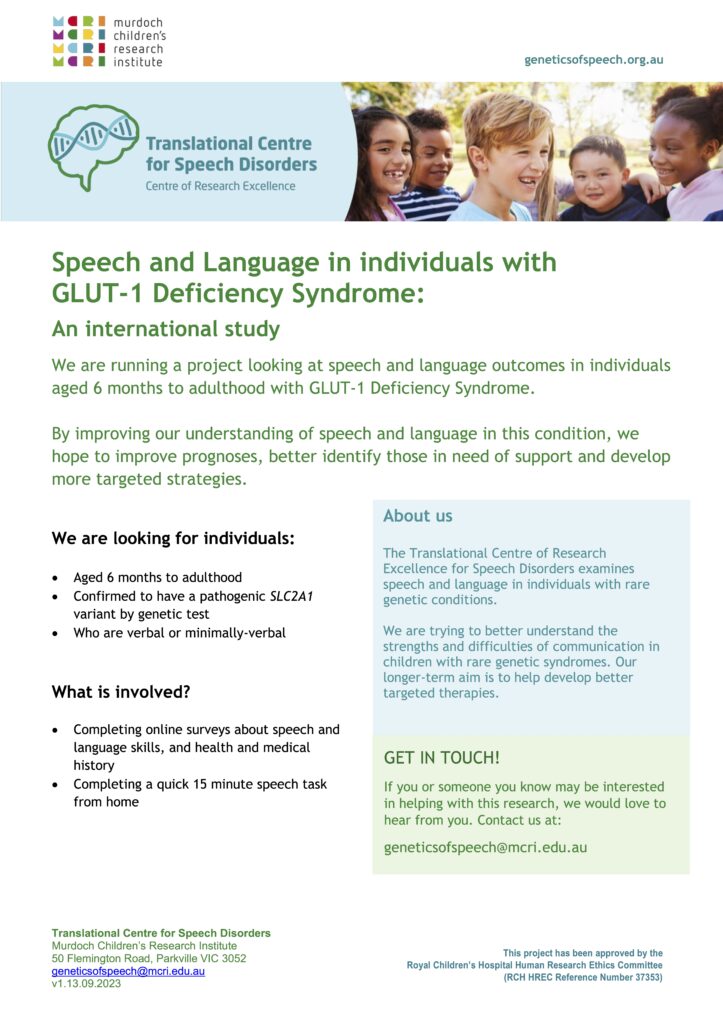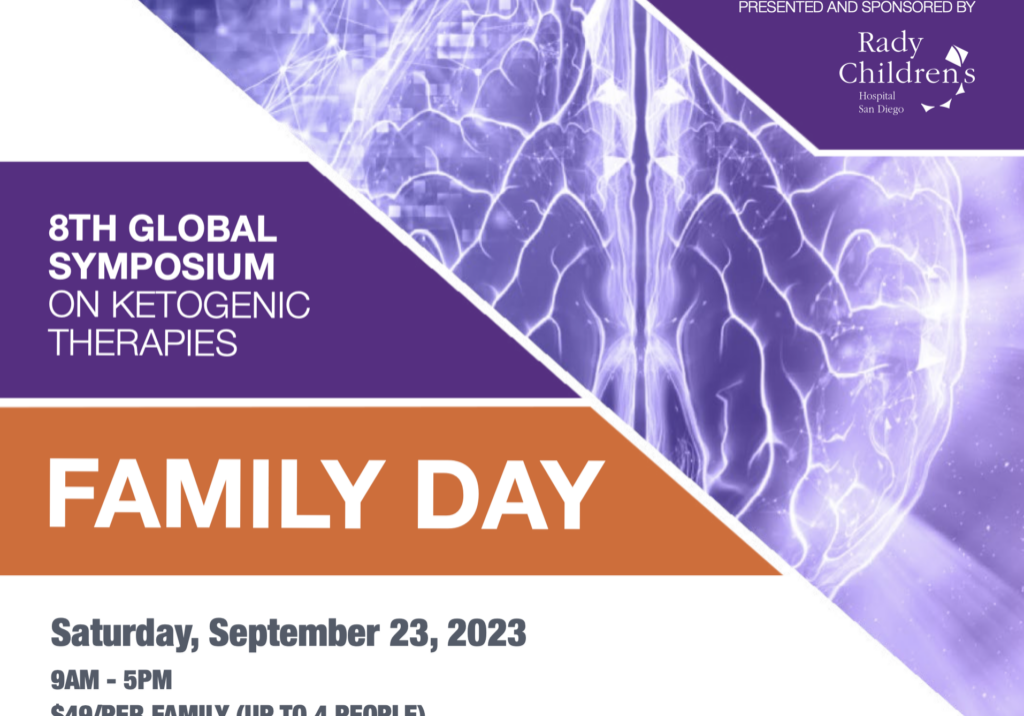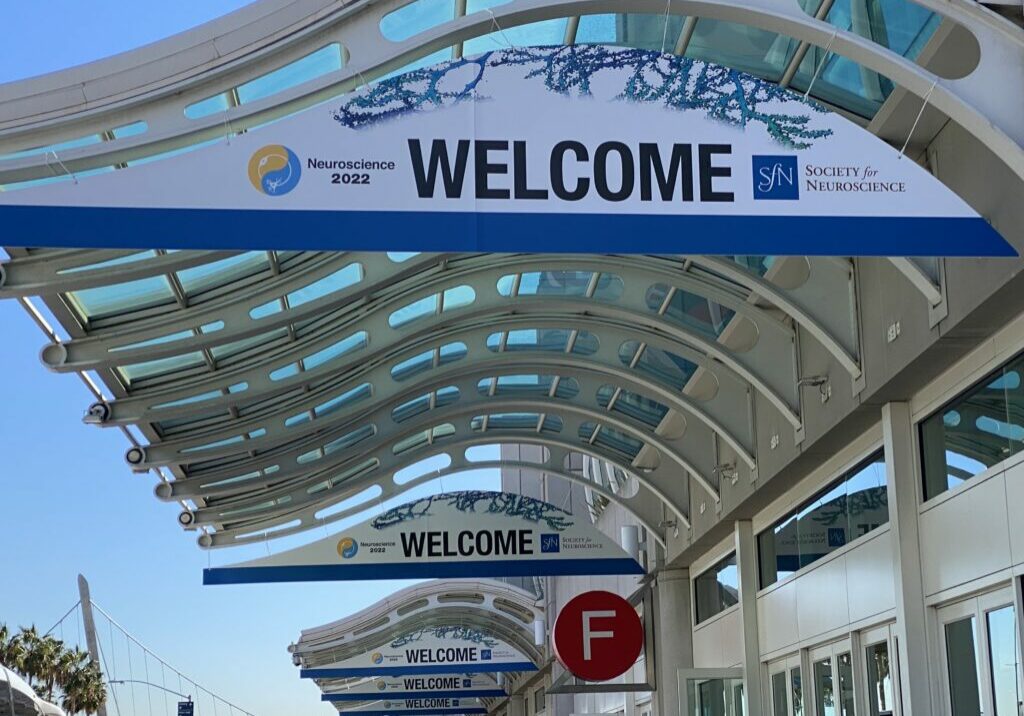Speech and Language Study Enrollment
Speech and language disorders are a hallmark symptom of Glut1 Deficiency and the majority of patients experience some form of impairment. These challenges were identified by patients and families in our Collective Voices in Glut1 Deficiency Project as a major impact on quality of life and a top priority symptom to target with new treatments. However, the full spectrum of speech and language impact is not yet fully understood or described.
To help address this patient-centered priority, the Glut1 Deficiency Foundation is pleased to support a new study to help better understand, characterize, and treat speech and language disorders in our disease. This study is the largest global study of communication in this rare and debilitating condition.
The study is being conducted by the University of Melbourne in collaboration with Murdoch Children’s Research Institute (MCRI) and Redenlab, in conjunction with the Translational Centre for Speech Disorders at The Royal Children’s Hospital Melbourne (Australia). The Glut1 Deficiency Foundation, thanks to the support of our donors, is providing $50,000 in funding to help expand this to an international project to help increase representation across the wide range of patient backgrounds and experiences.
By improving the understanding of speech and language in this condition, we hope to improve prognoses, better identify those in need of support and develop more targeted strategies.
The study team is recruiting individuals aged 6 months to adulthood with Glut1 Deficiency (pathogenic variant of SLC2A1) and of all speech and language abilities (verbal or minimally verbal).
Participation involves completing some online surveys about speech and language, health and medical history, and some speaking tasks. The tasks are available in multiple languages (English, French, German, Spanish, Dutch, Portuguese, and Italian) – they are including families from across the world!
If you are interested in participating, please find more details in the flyer below (download here).
Families can register their interest in taking part by emailing [email protected] and the study team will send the information to get started via email.




